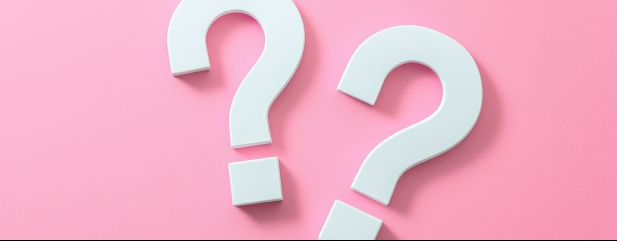Archived article
Please note that tax, investment, pension and ISA rules can change and the information and any views contained in this article may now be inaccurate.
I’m approaching 75 and thinking about how to use my tax-free allowance

I’m approaching 75 & thinking about the 25% tax-free allowance.
I’ve already taken the 25% from my SIPP. But I also have two stakeholder pensions of about £250,000, and I’m considering taking the tax-free portion and paying it into family ISAs.
I assume dying before 75 would be beneficial, tax-wise, but I’d prefer not to.
Ian
Rachel Vahey, AJ Bell Head of Public Policy, says:
One of the most attractive tax perks of pensions is the ability to take up to 25% of the pension pot as a tax-free lump sum (or pension commencement lump sum (PCLS)) once you reach age 55 (increasing to age 57 from April 2028).
Last year the rules on pensions changed. Now, only the amount withdrawn as tax-free lump sums are measured against a limit. The amount you withdraw as income isn’t measured, allowing you to build up a pension pot of any size, withdraw it all as income, with no additional taxes beyond the standard income tax.
THERE’S A LIMIT ON LUMP SUM WITHDRAWALS
The limit controlling tax-free lump sums is called the lump sum allowance (LSA). It’s usually set at £268,275. If when you add the tax-free lump sums you take from all your pensions you go over this limit, then the excess will be taxed in the same way as earnings.
When you take your tax-free lump sums you are removing your money from a very tax-efficient environment so it’s a good idea to consider the most suitable time and way to do this. And if you do withdraw put it somewhere where it can keep on growing tax efficiently.
Paying into ISAs is a good solution. Every adult has a £20,000 allowance across all their ISAs, up to £4,000 of which can be paid into a Lifetime ISA. Although it’s important to remember that ISAs fall within your estate for inheritance tax (IHT) purposes when you die.
Grandparents and others can also pay into a Junior ISA for an under 18-year-old. Their ISA allowance is £9,000.
Another alternative is to pay into a pension for a relative, whether that’s an adult or a child. The overall limits for personal contributions to receive tax relief is the individual’s earnings (with the annual allowance of, usually, £60,000, applying as well). Even if the individual isn’t earning – for example a child - £2,880 can be paid into a pension each year. When HMRC adds the tax relief on that’s an annual contribution of up to £3,600. However, the pension holder cannot access the money until they are 55 (rising to 57 from April 2028).
A WORD OF WARNING
One word of warning for those who take their PCLS from their pension but are still contributing into it. HMRC has set rules to prevent recycling of tax-free lump sums. This means deliberately taking a PCLS out of a pension and then paying it back into the pension as a contribution, receiving tax relief on the way.
Recycling is said to have happened if the PCLS is more than £7,500, the pension contributions significantly increase, the additional contributions are more than 30% of the PCLS, and the recycling was pre-planned.
Once you have taken your PCLS, then you can take the income out of the pension whenever you want through drawdown. However, it’s always worth checking if the pension scheme offers drawdown – not all of them do, especially some workplace-based schemes.
If you die with funds remaining in your pension (known as unused pension funds), then your loved ones can inherit them and take them as a lump sum or maybe an income. If you die under age 75 then any income they take will be tax free, and any lump sum will be tax free if the total tax-free lump sums paid out in life and on death are below a certain limit, the lump sum and death benefit allowance (LSDBA). This is usually £1,073,100.
If you die over the age of 75, then any inherited pensions taken by your loved ones as either a lump sum or an income is taxed in the same way as earnings.
Currently, unused pension is free from IHT (inheritance tax). The government has proposed changing this so IHT is extended to unused pension from April 2027. However, this is not yet settled, and we don’t know the final rules.
DO YOU HAVE A QUESTION ON RETIREMENT ISSUES?
Send an email to askrachel@ajbell.co.uk with the words ‘Retirement question’ in the subject line. We’ll do our best to respond in a future edition of Shares.
Please note, we only provide information and we do not provide financial advice. If you’re unsure please consult a suitably qualified financial adviser. We cannot comment on individual investment portfolios.
Important information:
These articles are provided by Shares magazine which is published by AJ Bell Media, a part of AJ Bell. Shares is not written by AJ Bell.
Shares is provided for your general information and use and is not a personal recommendation to invest. It is not intended to be relied upon by you in making or not making any investment decisions. The investments referred to in these articles will not be suitable for all investors. If in doubt please seek appropriate independent financial advice.
Investors acting on the information in these articles do so at their own risk and AJ Bell Media and its staff do not accept liability for losses suffered by investors as a result of their investment decisions.
Issue contents
Dan Coatsworth
Editor's View
Feature
Great Ideas
News
- The first-quarter earnings season was a mixed one for the UK’s big banks
- Latest payroll figures suggest US economy is on a firm footing despite tariffs
- Can Walmart mitigate tariff-related price shocks?
- CVS shares boosted by benign working paper from the competition watchdog
- Buffett surprises markets after stepping down as CEO after 60 years at the helm
- Clarkson shares down 20% as uncertainty impacts maritime demand
 magazine
magazine








